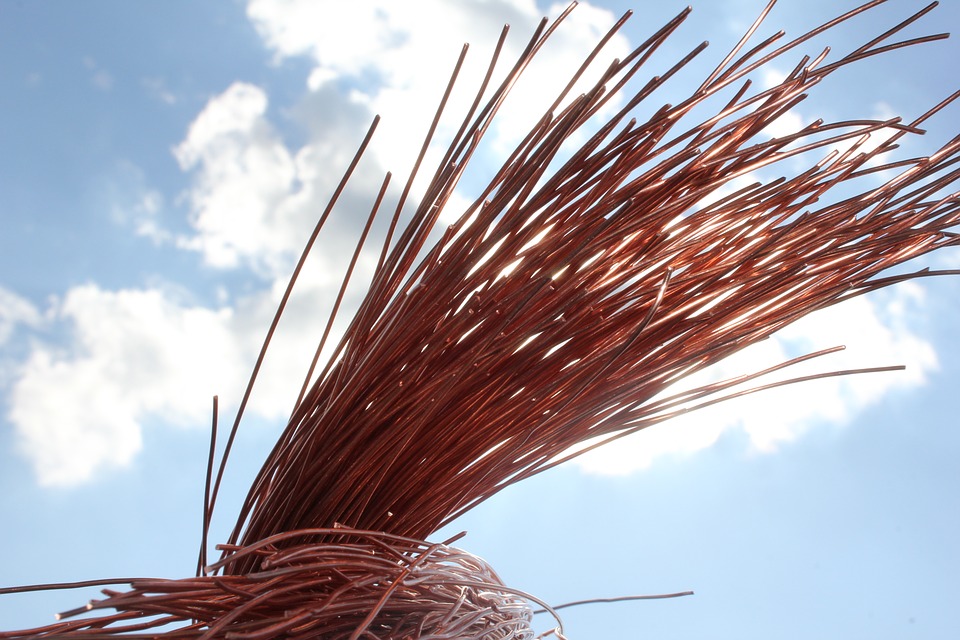
When selecting the right electrical wire for a project, one of the most important decisions is choosing between copper and aluminum wire. Both materials have unique properties, advantages, and drawbacks, making them suitable for different applications. Understanding the differences between copper and aluminum wire will help you determine which is the best choice for your specific project.
Key Differences Between Copper and Aluminum Wire
Conductivity
- Copper wire is a better conductor of electricity compared to aluminum. It allows more electrical current to flow with less resistance, making it ideal for high-performance applications.
- Aluminum wire has about 60% of the conductivity of copper, meaning it needs to be thicker to carry the same amount of current as copper.
Weight and Flexibility
- Aluminum wire is significantly lighter than copper, making it easier to handle, transport, and install. This makes it a popular choice in aerospace, utility transmission, and large-scale industrial projects.
- Copper wire is heavier and denser, which can make installation more challenging in some applications.
Durability and Longevity
- Copper wire is highly resistant to corrosion, ensuring a long lifespan in harsh environments.
- Aluminum wire can oxidize over time, forming an insulating layer that may increase resistance and the risk of electrical failure. However, modern aluminum wire is coated to prevent excessive oxidation.
Cost and Availability
- Aluminum wire is more cost-effective than copper, making it a popular option for budget-conscious projects where large amounts of wire are required.
- Copper wire is more expensive but provides higher efficiency and reliability, justifying the cost in applications where safety and longevity are priorities.
Safety Considerations
- Copper wire is less prone to expansion and contraction due to heat, reducing the risk of loose connections and electrical fires.
- Aluminum wire, if not properly installed or maintained, can expand and contract over time, potentially leading to loose connections. Using proper connectors and installation techniques mitigates these risks.
Which Wire Is Best for Your Project?
Best Uses for Copper Wire:
- Residential Wiring – Ideal for home electrical systems, outlets, and switches due to its reliability.
- High-Performance Industrial Applications – Used in motors, transformers, and generators where conductivity is crucial.
- Solar Power Systems – Copper wire is widely used in solar installations, ensuring minimal power loss.
- Aerospace and Automotive – Copper is used where high durability and resistance to corrosion are essential.
Best Uses for Aluminum Wire:
- Utility and Power Transmission – Aluminum is the preferred choice for power grids and transmission lines due to its lightweight nature.
- Large-Scale Industrial Installations – Used in factories, commercial buildings, and substations where cost savings are necessary.
- Underground and Overhead Service Lines – Aluminum wire is commonly used in large-scale electrical distribution because of its affordability and weight advantage.
- Temporary Installations – In construction or temporary power setups, aluminum is often used due to its lower cost.
Conclusion
Choosing between copper and aluminum wire depends on the project’s budget, performance requirements, and environmental factors. Copper wire is ideal for applications where efficiency, safety, and longevity are priorities, such as home wiring, solar installations, and industrial equipment. Aluminum wire, on the other hand, is a cost-effective and lightweight solution, making it suitable for power distribution, industrial facilities, and large-scale transmission projects.
For long-term reliability and minimal maintenance, copper wire is generally the better choice. However, for large-scale projects where cost and weight are concerns, aluminum wire remains a viable option—as long as it is installed correctly to prevent potential hazards. Understanding these factors ensures that you select the right wire for your specific electrical needs.

